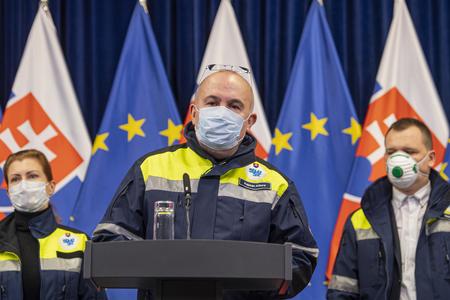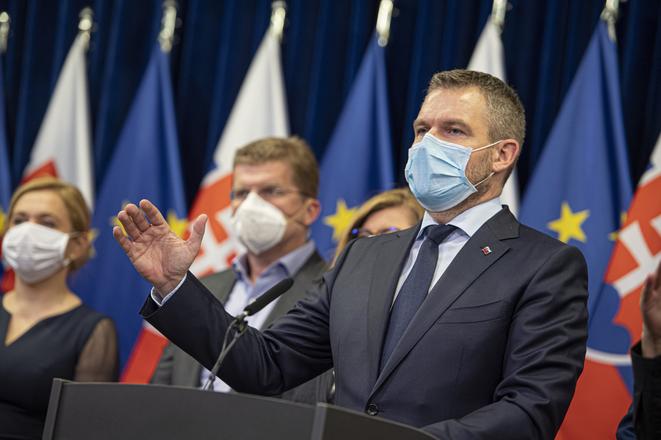Our paywall policy
The Slovak Spectator has decided to leave all the articles about the coronavirus available for everyone. If you appreciate our work and would like to support good journalism, please buy our subscription. We believe this is an issue where accurate and fact-based information is important for people to cope.
As of Monday morning, all small retail shops and service providers with the exception of grocery shops, pharmacies, newsagents, petrol stations, veterinary ambulances, and shops selling animal food. Restaurants remain open but are not allowed to serve clients on their premises.
The government has announced national emergency for health care. It has been taken as a preventive decision. Under this regime, some professions, including health care workers, fall under state orders. This way, the state will be able to move health care staff and material between hospitals.
The state of emergency that was announced in Slovakia as of March 12 remains in place.

The cabinet held an extraordinary session to deal with the coronavirus situation in Slovakia on Sunday, March 15. The entire cabinet of ministers stood in front of journalists after, wearing protective masks.
Slovakia has 61 positive COVID-19 patients. 1,375 tests returned a negative result.
"It turns out Slovakia, which decided to react in a more severe and faster way than other countries, has done the right thing," Pellegrini said. Slovakia is so far managing to maintain the curve of infections in manageable terms.
Repatriations to be organised
All health care providers must stop providing planned surgeries that are not linked to life- or health-threatening cases. They should maintain their capacities ready for a greater outbreak of the epidemic.
The Foreign Ministry has been assigned to organise the repatriation of Slovak citizens who are located outside the country and want to return to Slovakia.
All those who return within the repatriation efforts of the government will be required to remain in quarantine facilities provided by the government. If they refuse to do so, Pellegrini admitted the government might need to announce a higher level of national emergency.
The police have documented 200 cases of violation of compulsory quarantine; all of them will pay the highest possible fine (€1,650).
Water for marginalised communities
The government assigned the government proxy for Roma communities to handle the upcoming distribution of social allowance. Municipal authorities are recommending allowing unlimited access to drinking water to all persons living in marginalised communities, in order to prevent the infection from spreading among these groups.
"We are convinced that these measures will allow the health care facilities to manage the epidemic that we are expecting," Pellegrini said.
The crisis staff will talk over further measures on Monday, including an order to use protective masks or suitable alternatives on all means of public transport, and which shops and service providers will remain open. The crisis staff will also discuss the situation on Polish borders. The cross-border commuters to Austria and the Czech Republic remain an open issue as well.
The finance and economy departments have been assigned to design measures to counter the economic effects of the current situation.


 PM Peter Pellegrini announces further measures and national emergency after the March 15 session of his cabinet. (source: TASR - Michal Svitok)
PM Peter Pellegrini announces further measures and national emergency after the March 15 session of his cabinet. (source: TASR - Michal Svitok)